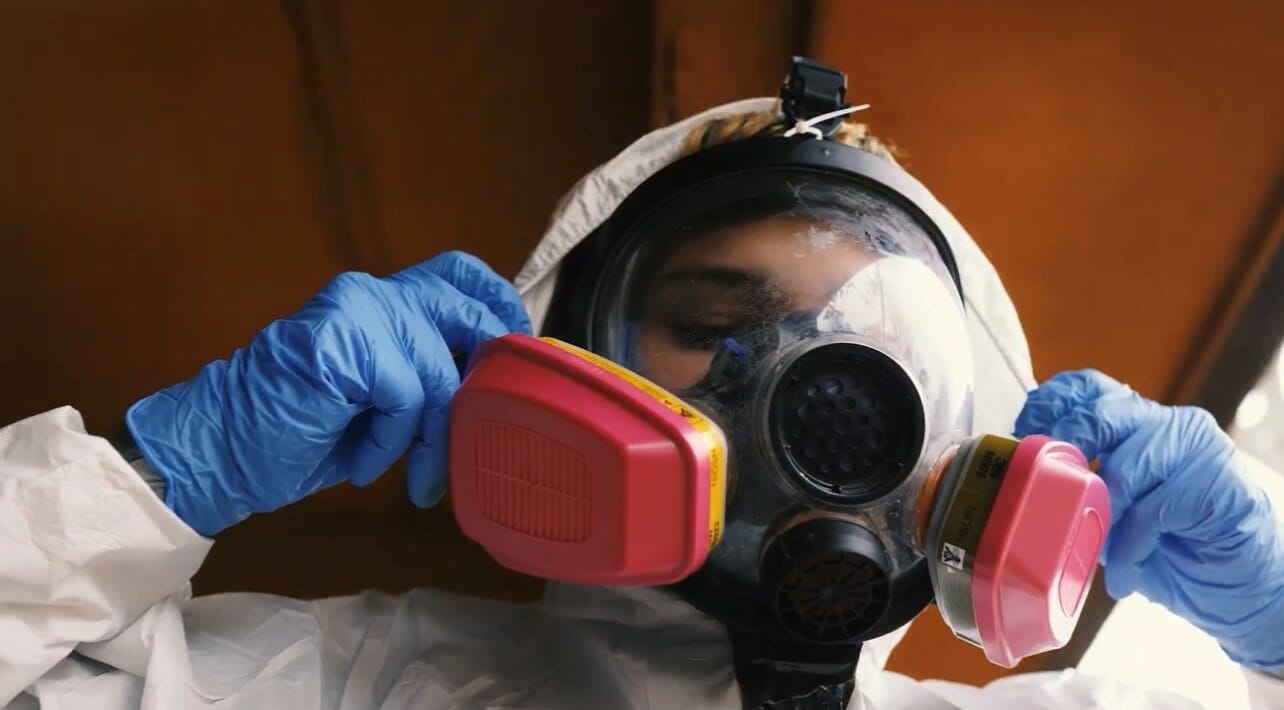
Working in a biohazard suit is a demanding and crucial job, particularly when considering the conditions that arise during the hot summer months. These protective suits are essential for safeguarding workers against hazardous substances, pathogens, and potentially life-threatening situations. However, it is crucial for companies to prioritize the health and safety of their employees who work in such challenging environments. In this blog post, we will explore the conditions of working in a biohazard suit, especially during the summer, and how companies strive to ensure the well-being of their workers.
Biohazard suits are designed to create a sealed environment, protecting workers from external threats. Unfortunately, this also means limited ventilation, leading to increased body heat and perspiration. In hot summer temperatures, the risk of heat stress and exhaustion becomes significantly higher. An article by the CDC describes a study that details the heat strain and stress while working in biohazard suits.
No matter who you are there will be a temperature increase once you get into a biohazard suit and begin working. This increase will vary from person to person. Studies shown in the National Library of Medicine show that this increase can be between 11 degrees Fahrenheit and 20 degrees Fahrenheit. This would mean that on a hot 90-degree day you will be sitting in temperatures up to 110 degrees for extended periods of time.
Wearing a biohazard suit is very physically demanding. These suits are often heavy, restrictive in movement, and can cause fatigue and muscle strain. The discomfort can be further exacerbated by the heat and humidity during summer. When stepping into a biohazard suit, it is comparable to taking a greenhouse-like environment and containing it to a human-sized space. This can quickly lead to heat exhaustion.
Prolonged use of biohazard suits, combined with high temperatures, can lead to excessive sweating and dehydration. Maintaining hydration levels becomes critical for workers to perform their duties effectively and prevent potential health issues.
Working in a biohazard suit during the summer presents unique challenges for the individuals tasked with safeguarding public health and safety. However, Bio-One NW Indianapolis recognizes the importance of prioritizing worker health and safety. By integrating thorough training, cooling, hydration, health monitoring, and enhanced PPE, we can ensure excellent protection and support for workers in demanding environments. The ongoing efforts to enhance work environments and equipment demonstrate a commitment to the well-being of those working tirelessly in biohazard suits, ultimately contributing to a safer and healthier working environment.
If you have any questions, you can reach out to us at any time. We are always here to help.
"Help First, Business Second"
24 / 7 / 365
(317) 435-1611

The roots of crime- and trauma-scene cleaning companies can be traced to the 1990s, and at that time only a dozen or so companies existed. The industry was widely unregulated and awareness of contamination risks were relatively non-existant.
"I was young and dumb and saw something you only see in movies, so I quickly shut the door, took a deep breath, sat on the couch with the widow and told everyone else to get her out of here and take her to lunch, and we’ll clean this up for her," said Nick-Anthony Zamucen, Founder of Bio-One Inc. "We were just trying to help a lady in her greatest time of need, and that’s for me how I got into the crime scene and cleaning business." Read Nick's story in Franchise Times.
Today, there are hundreds of companies that advertise crime and trauma scene cleaning, and a simple Google search may prove overwhelming when you're experiencing one of the most traumatic moments in your life. To help, we've listed pre-qualifying questions to ask before choosing a crime and trauma scene company.
Questions to Ask Before Hiring a Crime and Trauma Scene Cleaner
There are a number of key questions to ask crime and trauma scene cleaning technicians or business owners to properly root out which one is best for your goals and circumstances.
Last but certainly most important, make sure the business you speak with shows care and compassion for your situation. They should want to do everything possible to support you and your loved ones.
If you are searching for a crime and trauma scene cleaner, Bio-One is here for you. All of our offices adhere to our business motto Help First, Business Second and are available 24/7. Click here to search for a Bio-One team near you.